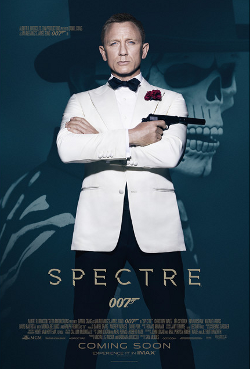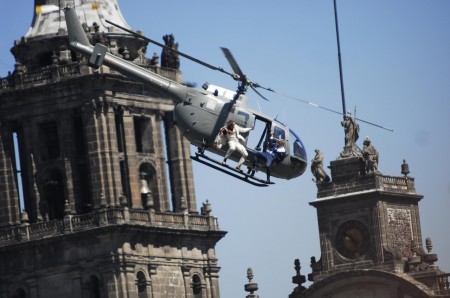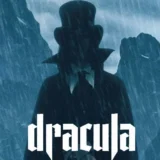 Human beings seem to require marking endings with large elaborate headstones – or music or fireworks – so they won’t be forgotten, but in the process risk obscuring what was memorable in the first place. The idea isn’t that strange; beginnings and endings are naturally important moments in time for those taking part in them.
Human beings seem to require marking endings with large elaborate headstones – or music or fireworks – so they won’t be forgotten, but in the process risk obscuring what was memorable in the first place. The idea isn’t that strange; beginnings and endings are naturally important moments in time for those taking part in them.
They aren’t the end all and be all, just the beginning and ending, but the desire to focus on them moves that focus away from the more important elements which justify them. With the James Bond franchise nearing the end of its current era the current creatives have fallen into just that trap and with very typical results. Bond (Craig) himself feels that end coming as well; he is as close to peace as he has ever been in his life, with all his old foes and ghosts laid to rest. All but one.
Following up on one last lead from the previous M (Judi Dench), Bond turns his back on MI6 to disappear into Europe in search of the shadowy figure behind all of the downturns his life has taken. His first stop is Mexico where he tracks down a shadowy assassin (Cremona) in an extended single-shot action sequences which morphs seamlessly from a walk in a crowd to a stroll along rooftops amid a collapsing building before culminating in a fistfight aboard an out of control helicopter above a crowded Mexican square.
 It’s the sort of over the top action sequences the franchise has always done well and with a giant budget and an array of picturesque locations in the portfolio director Sam Mendes and cameraman Hoyte Van Hoytema (“Interstellar”) have made “Spectre” one of the best looking Bond films ever and one of the most exciting. Stunt sequence builds upon stunt sequence in a relentless build of forward momentum as “Spectre” hurtles towards the return of Bond’s greatest foe.
It’s the sort of over the top action sequences the franchise has always done well and with a giant budget and an array of picturesque locations in the portfolio director Sam Mendes and cameraman Hoyte Van Hoytema (“Interstellar”) have made “Spectre” one of the best looking Bond films ever and one of the most exciting. Stunt sequence builds upon stunt sequence in a relentless build of forward momentum as “Spectre” hurtles towards the return of Bond’s greatest foe.
For all that forward motion, however, by its nature the film is always backwards looking – part of the particularly large price tag attached to the bigger and louder elements filling so much of the film’s running time.
The other part of the tag is coherence. In an effort to mark the end of the Craig era with not just a headstone but a bow the Bond filmmakers have attempted to tie all the threads of the past three films together and instead only tied themselves into knots.
In a sterling example of what Damon Lindelof called Story Gravity it seems to have been decided that such a connection will up the stakes to a suibtable level for such gargantuan entertainment. But because it’s retroactive it’s a difficult leap to make – a problem the filmmakers have solved by not attempting it.
Instead they have simply walked around the water hazard before remounting then telling everyone they made it under the assumption that if they repeat the statement enough times everyone will accept it as true. Even this is not high enough stakes, however, leaving the filmmakers to also develop a shared history between Bond and the mystery man (Waltz) behind all his problems which accomplishes little but to force both Bond and his opponent to do things for seemingly no reason.
This includes one of the most pointless torture scenes to ever appear in the franchise, one of many returning clichés the series seemed to have ditched only to have drug out of mothballs at the last possible moment. Among other things this leaves “Spectre’s” ultimate goal barely comprehensible beyond the idea that it involves co-opting the new world order of electronic surveillance being developed by incoming head of British intelligence (Scott).
Escaping back to London, Bond races to reunite with his Secret Service colleagues before the new surveillance scheme, and its dark undertones, destroys not just Bond but everything he’s ever built out of his life. It’s a late, last gasp at actual stakes for Bond – real dramatic stakes as opposed to ersatz ones made of retconned importance – as the character attempts to re-examine his life and decide what he really wants and as the filmmakers realize they have given Craig nothing to do in his final outting in favor of gadgets and muscle bound henchmen and tricked out sportscars and all the other returned detritus of the previous 50 years.
In that sense he is perfectly matched by Waltz and much of the rest of the cast who are trapped amid the giant set pieces and endless rearrangements of deck chairs aboard the SS James Bond. It’s a problem no one involved can cut their way out of no matter what pyrotechnics they use as the obsession with the past destroys forward momentum both in plot and theme.
 Spectre doesn’t undo all of the good work the people behind the Bond franchise have done with series over the last decade, but it’s backwards looking nature makes the final product regressive in all the worst ways. All the distractions from Bond’s essence have returned as if the heights of “Casino Royale” were, rather than a new standard, the apex of an extended rubber band which could only be held for so long before snapping back to the norm.
Spectre doesn’t undo all of the good work the people behind the Bond franchise have done with series over the last decade, but it’s backwards looking nature makes the final product regressive in all the worst ways. All the distractions from Bond’s essence have returned as if the heights of “Casino Royale” were, rather than a new standard, the apex of an extended rubber band which could only be held for so long before snapping back to the norm.
Despite that it is frequently exciting and thrilling but in the mindless way older installments were and the new Bond films hadn’t been until now. As explosive elements build one atop the other they become increasingly desperate. For all of the efforts of the considerable talent on display all they manage is to prove Yeats right after all. When the end comes, it’s not with a bang but a whimper.
5 out of 10 stars
Starring Daniel Craig, Christoph Waltz, Léa Seydoux, Ralph Fiennes, Ben Whishaw, Dave Bautista, Naomie Harris, Rory Kinnear, Andrew Scott, Monica Bellucci and Jesper Christensen









